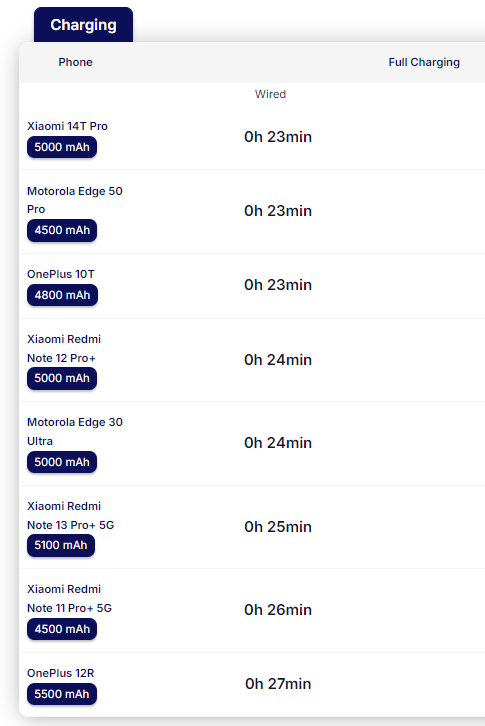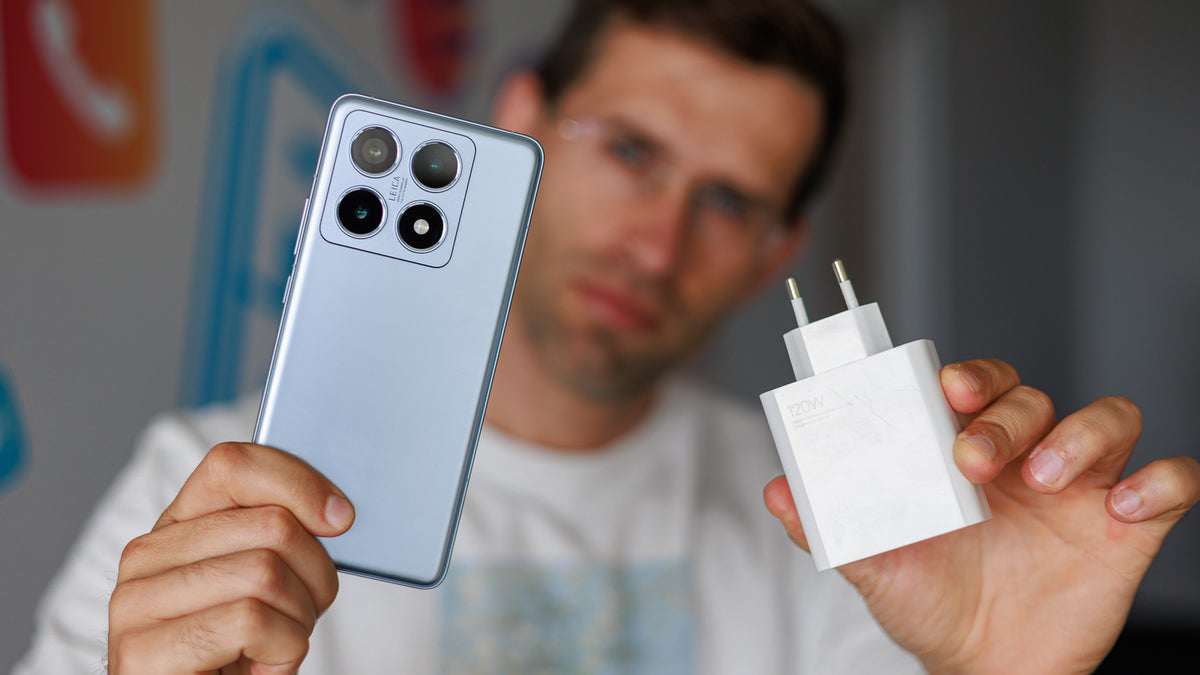Apple, Samsung, and Google phones are all charging too slowly compared to other brands.
Now, in 2024, when buying a high-end smartphone , users still have to wait more than an hour and a half to fully charge the battery, as long as a decade ago. 10 years ago, Samfan had to wait 2 hours to fully charge the Galaxy S4. Now, the new iPhone has not changed much.
Illustration photo.
In other words, a decade of technological advances has not solved the problem.
Apple, Samsung , and Google are slow to adapt to the new era, especially charging technology. Meanwhile, many phone makers in China have long solved the charging "problem." These brands are not only trying to catch up, but also setting the direction for the industry.
Most high-end Android phones from OnePlus, Oppo, Xiaomi or Huawei now support ultra-fast wired charging. Some have 100W charging. Vivo has a few phones that support 200W charging. Xiaomi's Redmi has announced a 300W charging solution while Oppo's Realme has announced plans for 320W ultra-fast charging.
Amazing!
For example, the recently launched Xiaomi 14T Pro supports 120W wired charging and 50W wireless charging, which is far faster than the Pixel, iPhone, or Galaxy.
Users can fully charge the Xiaomi 14T Pro from 0 - 100% in just 23 minutes (Xiaomi advertises 19 minutes), which is an extremely fast result!
The fastest charging phones
In fact, three Android phones share the top spot on the list of fastest charging smartphones, all of which can fully charge in 23 minutes: the Xiaomi 14T Pro, Motorola Edge 50 Pro, and OnePlus 10T.

Battery charging time of some smartphones.
In the top 2, both the Xiaomi Note 12 Pro+ and the Motorola Edge 30 Ultra fully charged their batteries in 24 minutes. In third place, the Xiaomi Redmi Note 13 Pro+ 5G fully charged its battery in just 25 minutes. However, there are no Samsung, Apple, or Google phones in this ranking.
Why is slow charging normalized?
In fact, the average user has given up and "accepted" that Samsung, Google, and Apple phones have disadvantages when it comes to fast charging capabilities.
The Galaxy S24 Ultra is capable of charging at a maximum of 45W, the Pixel 9 Pro XL can charge at 37W while the latest iPhones can go up to around 40W.
The reason for this lies in battery life. Fast charging at high power will generate heat, and heat will weaken the phone battery. This will cause the components inside the battery to degrade faster, reducing the battery's ability to hold a charge and shortening its life.
Manufacturers have tried to fix this. OnePlus, for example, has addressed heat buildup during fast charging with its Dash and Warp Charging solutions, both of which shift heat management to the charger rather than the phone.
It's time for high-end smartphones to get bigger batteries
Clearly, smartphones are just a piece of technology. We shouldn’t worship them. We should use them, not let them use us. They should fit into our busy lifestyles, not the other way around.
Saving your phone’s battery won’t make it last forever, either. Turning on the iPhone’s 80% charge limit might preserve battery health a bit, but it also forces you to cut down on battery life, which is a bad trade-off.
Apple needs to create an iPhone that can charge 70W. Then the iPhone can be fully charged in less than 40 minutes. This is also a way for "Apple House" to regain some of its lost reputation.
Samsung needs a similar improvement.
Google also needs to beat its biggest rivals by doubling the charging speed for the anniversary Pixel 10 series.
We need to stop normalizing slow charging. The technology is ready and the choice should be ours. Let's demand more from our devices - they should serve us, not hold us back.


